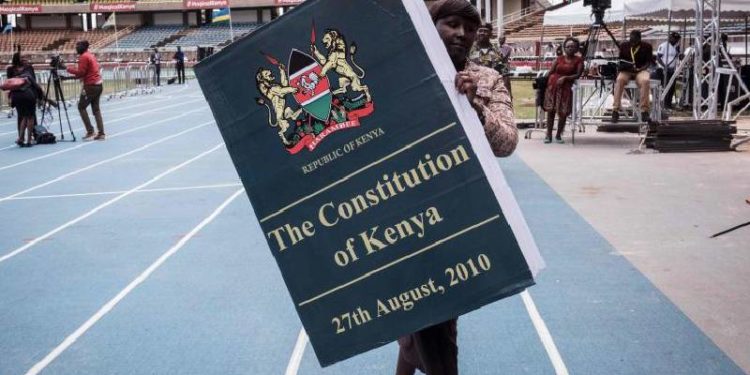A new bill has been read in the Senate that could significantly alter Kenya’s political landscape. The Constitution of Kenya (Amendment) (No. 2) Bill, 2024 proposes several changes, notably extending the terms of elected leaders and introducing a new political office.
Key Provisions of the Bill
At the heart of the amendment is a push to extend the terms of various political offices from five to seven years. This shift would affect Members of Parliament (MPs), Senators, Governors, and even the Presidency. If enacted, the bill would amend Articles 101, 136, 177, and 180 of the Constitution, which currently stipulate that elections occur every five years.
The proposed extension comes with arguments for stability and cost savings on regular elections, but it has raised concerns about its impact on democratic processes and accountability. The longer tenure for elected officials could give them more time to implement policies, but critics argue it risks entrenching power and delaying the chance for voters to express their dissatisfaction.
A New Political Office: The Prime Minister
Another notable change proposed in the bill is the creation of the office of the Prime Minister. The Prime Minister, to be appointed by the President from the majority party or coalition in Parliament, would serve as the head of government and oversee day-to-day administration. This introduction of a Prime Minister seeks to balance power between the presidency and Parliament, a shift that aligns with global parliamentary systems but is new to Kenya’s current governance model.
Article 151 of the Constitution would be amended to accommodate the Prime Minister’s office. The Prime Minister would hold substantial authority over government operations while remaining accountable to both the President and Parliament. This arrangement has sparked discussions about whether it would lead to better governance or create potential conflict within the executive branch.
Strengthening the Role of the Senate
The bill also focuses on enhancing the Senate’s role in governance, particularly in financial oversight. The Senate’s mandate over county governments would be strengthened by giving it more powers to scrutinize revenue allocation and spending by counties. This proposed change, amending Article 96, is aimed at bolstering devolution by ensuring that counties remain financially accountable.
Additionally, the bill includes provisions that empower the Senate to have greater influence in the approval of key state appointments, shifting some responsibilities from the National Assembly. For example, the Senate would now vet and approve cabinet secretaries, principal secretaries, and other high-ranking government officials.
Impact on County Governments
In line with the goal of enhancing devolution, the amendment proposes increasing the minimum revenue allocation to county governments from 15% to 40% of national revenues. This change is designed to provide counties with more resources to effectively carry out their devolved functions. The move is seen as a significant boost for devolution, potentially allowing counties to tackle development issues with greater financial autonomy.
However, the implementation of this increase would require robust financial management structures to ensure that counties use these additional funds effectively and accountably. Some stakeholders worry about the possibility of mismanagement of increased funds without sufficient oversight.
Managing State of Emergency
The bill also addresses how the government manages states of emergency, extending the role of both the Senate and National Assembly in these situations. Currently, the National Assembly holds primary responsibility for approving the declaration and extension of states of emergency. The proposed amendment to Article 58 would require both houses of Parliament to participate in such decisions, reflecting the bill’s broader theme of increasing Senate involvement in key national matters.















